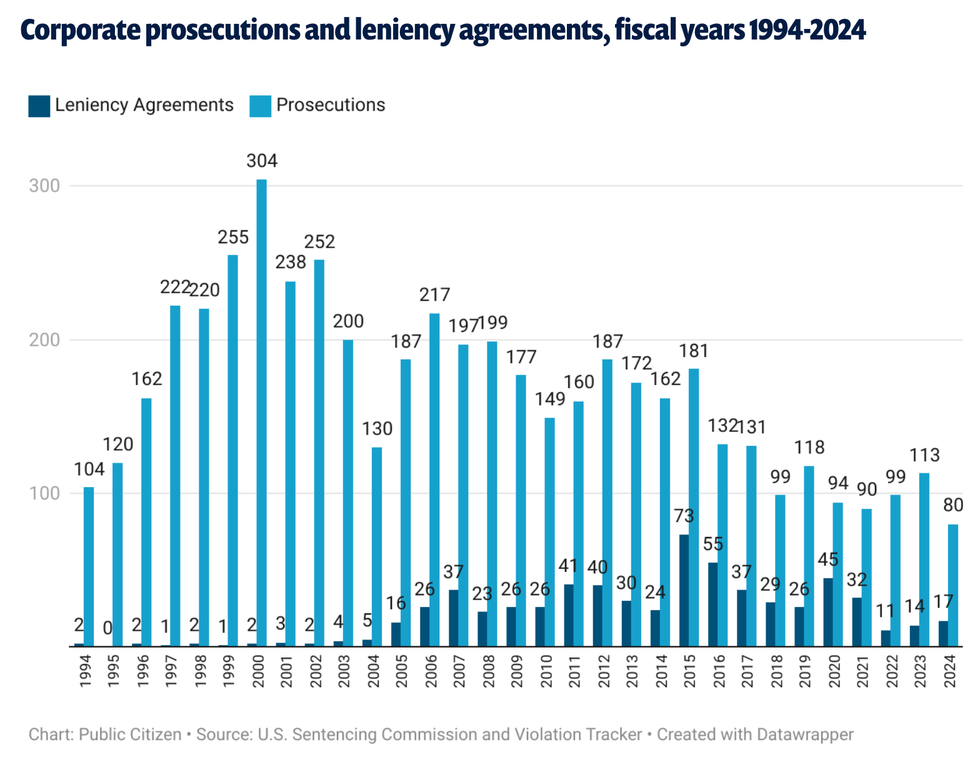Fears that President Donald Trump will try to revoke environmental groups' tax-exempt status is the "rumor of the day that is flying around D.C.," Brett Hartl, the government affairs director at the nonprofit Center for Biological Diversity, toldE&E News. "There's lots of rumors about what terrible thing [Trump] wants to do on Earth Day, to just give everybody the middle finger."
Sources who spoke to Bloomberg Law on the condition of anonymity told the outlet that multiple conservation and environmental groups are preparing and assembling legal teams in response to the rumors. Per Bloomberg Law, a potential order from Trump could also seize groups' funding and designate them as domestic terrorists.
"We are trying to not panic, because we don't know what it is," Hartl told E&E News, though he added that environmentalists would "rally together and support each other."
Kieran Suckling, executive director for the Center for Biological Diversity, told Bloomberg Law that his organization is preparing for a potential order, and said the group would take legal action if it comes to pass.
501(c)(3) tax-exempt organizations, such as the Center for Biological Diversity and Earthjustice, are exempt from federal income tax and can collect tax-deductible donations.
The environmentalist and author Bill McKibben reacted to the reporting by remarking that the threat comes amid the "ongoing decimation of federally funded climate science."
"I know a great many of these people, and I admire their work endlessly; it's an honor to be counted among them, even if I'm only a volunteer," he said of those who work for green groups. "It was perhaps inevitable that Trump and his team would target us; together we've been making life harder for his clients in the fossil fuel industry. And in the new America, if you don't knuckle under you get a knuckle sandwich. Figuratively speaking. One hopes."
Only the Internal Revenue Service can investigate and revoke a tax exemption, and senior executive branch officials are explicitly barred from asking the IRS to conduct or cease an audit of a taxpayer, according to The Washington Post. There are some circumstances under which the IRS may revoke a tax-exempt status.
"Neither the president, the U.S. Department of Justice, the U.S. Department of the Treasury, or the IRS have the ability to revoke the federal tax-exempt status of any entity through executive order or with the mere stroke of a pen," wrote Jeffrey Tenenbaum, a nonprofit attorney, on Thursday.
The procedure for revoking federal tax exemption requires "individual case-by-case IRS audits of each organization, with ample opportunity for the entity to defend itself, and including multiple routes of appeal," he added.
CNN was first to report Wednesday that the IRS—where Trump has installed an ally as interim commissioner—is weighing whether to revoke Harvard's tax exemption, news that came a day after the president suggested on his social media platform Truth Social that "perhaps Harvard should lose its Tax Exempt Status and be Taxed as a Political Entity if it keeps pushing political, ideological, and terrorist inspired/supporting 'Sickness?'"
According to E&E News, this suggestion by Trump in regard to Harvard has heightened environmental groups' concerns that the administration might take action against their tax-exempt status.
"The rumors feel credible because this is playbook they use," one environmental funder, who was granted anonymity, told E&E News. "That's why people are taking it very seriously."





